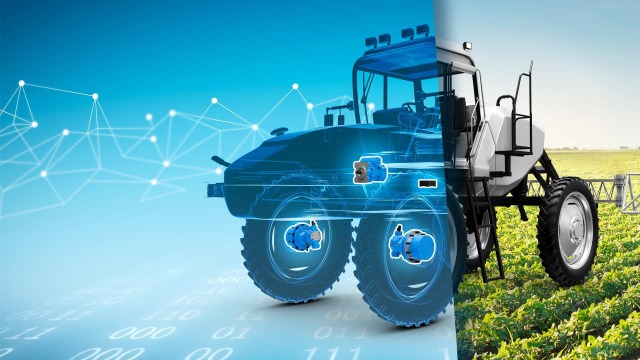The Future of Off-Highway Electric Vehicles: Driving Sustainability and Efficiency
Technology Integration TE Technology IntegrationPosted by TEAdmin on 2025-03-10 06:11:58 |
Share: Facebook | Twitter | Whatsapp | Linkedin Visits: 24

As technology continues to evolve, off-highway electric vehicles (EVs) are transforming industries such as construction, mining, and agriculture. Beyond sustainability, these vehicles are proving to be game-changers in terms of efficiency, durability, and safety. The rapid advancement of battery technology, autonomous driving, and component standardization is setting the stage for a future where EV adoption becomes the norm.
EV adoption gained momentum in the late 20th century due to advancements in battery technology, stricter environmental regulations, and industry-wide sustainability efforts. Over the past two decades, further improvements in battery performance, charging infrastructure, and sensor integration have made electric fleets more reliable and operationally efficient. Today, off-highway fleets—including heavy-duty construction machinery, mining equipment, and agricultural vehicles—are increasingly transitioning to electric power.
The off-highway EV industry is now entering a phase of significant growth, driven by economies of scale and declining cost barriers. As battery costs drop and charging technology becomes more efficient, fleet operators can experience lower operating expenses and higher long-term savings. This cost-effectiveness, combined with environmental benefits, is making EV adoption a strategic move for companies across multiple industries.
One of the most exciting advancements in off-highway EVs is the integration of autonomous driving technology. These systems enhance safety by reducing human error, improving operational precision, and extending vehicle durability. Autonomous EVs can optimize routes, enhance energy efficiency, and minimize downtime, further boosting their appeal to fleet operators.
For the off-highway EV sector to thrive, manufacturers need access to a robust ecosystem of components and technologies. However, the industry must also work toward interoperability standards to ensure seamless integration of parts from different manufacturers. Standardization will drive efficiency, accelerate innovation, and facilitate widespread EV adoption.
Companies like TE Connectivity are playing a pivotal role in shaping the future of off-highway EVs by developing advanced components and working toward global standardization. As industry-wide standards evolve, economies of scale will drive further technological advancements, making off-highway EVs even more affordable and efficient. These innovations will not only transform the off-highway sector but also influence related industries such as long-haul transportation and passenger vehicles.
Search
Categories
Recent News
- Hyderabad's Crime Rate Drops, But Challenges Remain
- Ferry Service Expansion: A Boost for Tourism in Tamil Nadu
- 'Culture Clash' in Adelaide: Racial Tensions Rise Over Park Usage
- Peace Talks in Abu Dhabi: A Glimmer of Hope Amidst War's Shadow
- Global Risks 2026: Navigating a Decade of Uncertainty
- Chaos in Parliament: PM Modi's Address Postponed Amid Opposition Uproar
- Turkish Airlines Flight Makes Emergency Landing in Kolkata
- Andhra Pradesh's Petrochemical Future: A Mega Project in the Making
Popular News
- Navigating IPO Market Dynamics Amid Volatility and Regulatory Changes
- Massive Worldwide Microsoft Outage Disrupts Multiple Sectors
- Panjapur Bus Stand to Reshape TNSTC Routes
- తెలుగుదేశం పార్టీ - పేదరికాన్ని నిర్మూలించడంలో వాగ్దానం
- Universities Embrace Remote Learning Technologies Amidst Ongoing Pandemic